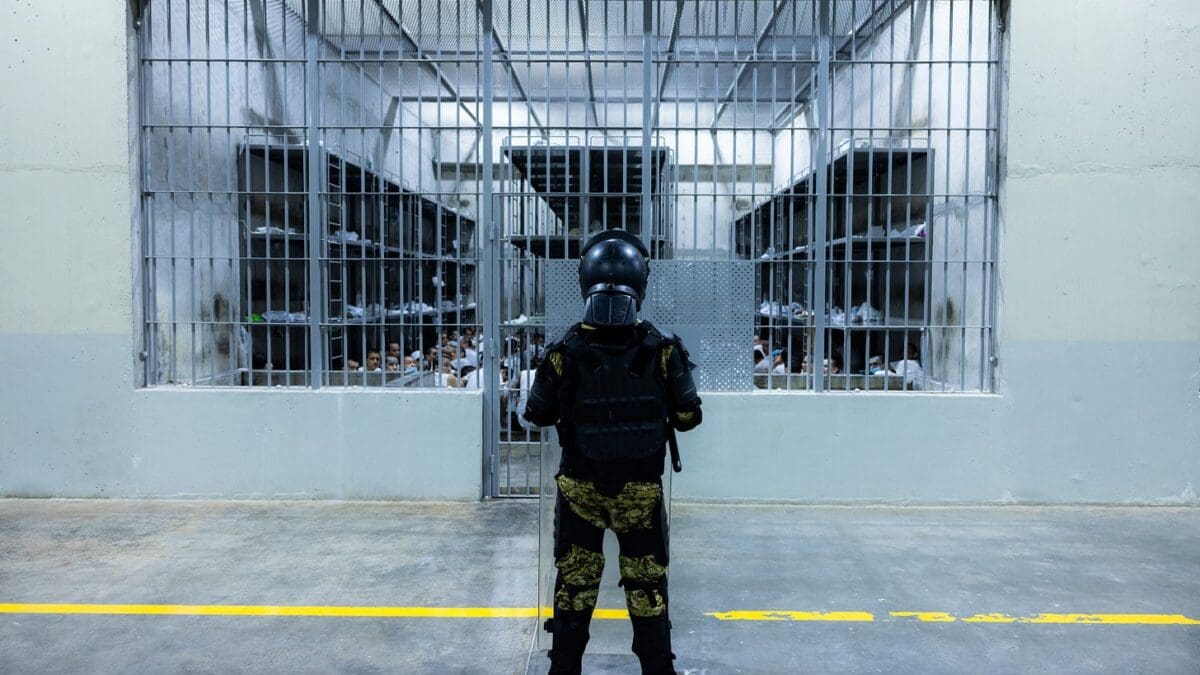
Trump downplays the role of far-right activist in firings of NSC staff
April 4, 2025
On Trade and Tariffs, Trump’s Stubborn Ignorance Shines Bright
April 4, 2025THE TRUMP ADMINISTRATION’S RECENT admission that officials made a mistake in sending an undocumented Salvadoran to a prison in his native country as part of its deport-now/ask-questions-later policy is more than a story of one man’s tragedy. Kilmar Abrego Garcia’s case poses a direct challenge to the bedrock principle of the right to due process.
Our Founding Fathers understood the dangers of the government pitting its resources and power against individuals. They knew that only by providing individuals protection to constrain government overreach could they ensure liberty for the future. The Fifth Amendment’s guarantee that “No person . . . shall be deprived of life, liberty, or property, without due process of law” prohibits exactly the kinds of actions taken against Abrego.
After President Trump signed an executive order invoking the 1798 Alien Enemies Act last month, ICE rounded up 238 alleged gang members (i.e., people the administration has asserted are gang members whether or not they have actually been charged with any crimes in court) including Abrego and deported them to El Salvador, handing them directly to Salvadoran authorities who imprisoned them all in an infamous “mega-prison.” Abrego was not given any hearing before a court or administrative body before being summarily whisked away and thrown in one of the most notorious jails in the world. Worse, a standing order prohibited Abrego’s removal from the United States to El Salvador.
In response to a suit subsequently filed by Abrego’s father, the Department of Homeland Security acknowledged the validity of a 2019 order barring his removal to El Salvador. Nonetheless, having done so, the administration now claims it has no power to get him back from Salvadoran custody. Or as El Salvador’s president Nayib Bukele, a Trump ally and self-described “dictator,” taunted after a district court judge ordered the planes carrying the deportees to turn back: “Oopsie… Too late.”
Abrego’s case has raised eyebrows, even among some Trump supporters. Podcaster Joe Rogan warned, “The thing is, you have to get scared that people who are not criminals are getting lassoed up and deported and sent to, like, Salvadoran prisons.” Of course, the way to protect against deporting the “wrong people” is to honor due process protections that are accorded even undocumented immigrants. (There are some limitations to due process for the expedited removal of aliens, but Abrego’s case fits none of them.) Agents picked up Abrego, an apprentice sheet metal worker at the University of Maryland, on March 12 while he was driving with his five-year-old son. The ostensible reason they targeted Abrego is that he had been apprehended in 2019 and accused of being a gang member.
Despite the administration’s claims, the only “evidence” tying Abrego to gang activity was the word of a confidential informant in 2019. Even at that time, the government did not produce any corroboration, nor has it at any time since. This, of course, is the problem with denying due process: The accused cannot offer contrary evidence or face his accuser. Had he been able to do so, Abrego might have produced evidence (as he did during his 2019 proceedings) that, “Beginning around 2006, gang members had stalked, hit, and threatened to kidnap and kill [Abrego] in order to coerce his parents to succumb to their increasing demands for extortion,” which led him to flee to the United States in the first place. That information was enough for the judge to issue an order releasing him from custody and prohibiting the government from sending Abrego to El Salvador because it was “more likely than not that he would be persecuted by gangs” there.
Abrego might also have challenged the confidential informant’s claim that he was a member of an MS-13 gang in Long Island—a place his lawyer said he never lived. But Abrego never got that chance. Apparently, the only lesson the Trump administration learned in the years between Abrego’s first and second apprehension is that due process is a hindrance to the deportation of 11 million people, which is why they are so openly flouting it now.
Although Abrego entered the United States illegally, he has no criminal record, either here or in El Salvador. He appears to have led a typical immigrant life in Maryland—keeping his nose clean, working construction, even gaining entry into a union apprenticeship program. He married a U.S. citizen with whom he has an American child. Yet, he remains incarcerated in a foreign prison that holds some of the most violent criminals in the hemisphere, including, perhaps, some of the very people who threatened him and his family more than a decade ago. He is not alone. Others sent to El Salvador without due process include a Venezuelan make-up artist and several men who were identified as members of Tren de Aragua simply because they bore tattoos of family members, sports teams, or even religious symbols (raising issues under the First Amendment in addition to the Fifth Amendment).
Due process doesn’t exist to protect criminals. Rather, it exists to make sure the government is doing its job accurately, fairly, and lawfully. If due process doesn’t protect Abrego—if the admittedly mistaken word of someone somewhere in the vast government bureaucracy is enough to pluck a man from Maryland and deliver him to a foreign prison in mere days—what is there to protect lawful immigrants, American citizens, or anyone?
Great Job Linda Chavez & the Team @ The Bulwark Source link for sharing this story.






